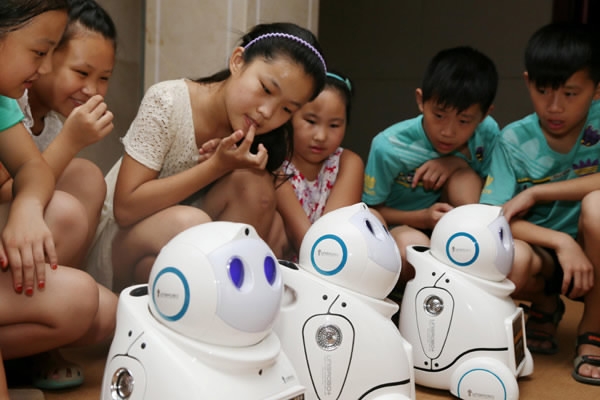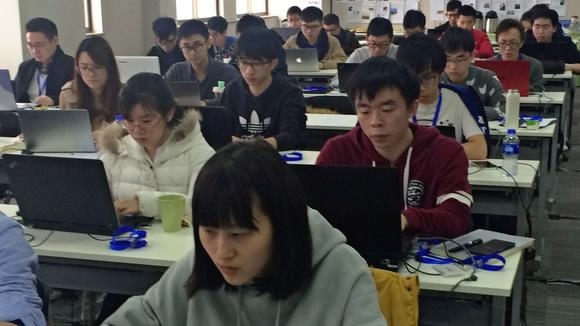
education
13:28, 28-Aug-2017
AI-related and coding courses to be set up in China’s primay and secondary schools
By Wang Xueying

More AI-related and coding courses are expected to be set up in China’s primary and secondary schools, said the State Council on the recently issued document of the Next Generation Artificial Intelligence Development Plan.
Considered as the key to productivity reform in the upcoming decades, AI technology’s rapid development is changing the society profoundly. China should seize the opportunity and join the promotion of AI popular science, encouraging more fundamental courses focusing on AI initiation, the State Council pointed out in the document.
Constructing more science infrastructure and providing more AI-related courses, China’s educational organizations will cultivate interests for the youth and ensure them more accesses to AI education, said the Plan.
Besides primary and secondary schools, governments will also support institutions of higher learning, vocational schools and socialization training Institutions to carry out AI skills training and foster more professionals, in order to meet the great demand of social development.

Chinese students are watching an AI-robot. /Chinadaily Photo
Chinese students are watching an AI-robot. /Chinadaily Photo
At the same time, more preferential policies and measures will be i place to encourage and support domestic AI enterprises to cooperate with international leading AI schools, scientific research institutes and teams, according to the State Council.
In fact, China has made a three-step national strategy to boost the AI industry development in China.

AI test is becoming a part of China’s college entrance exam. /NikkeiAsian Photo
AI test is becoming a part of China’s college entrance exam. /NikkeiAsian Photo
Firstly, China should have achieved important progress in a new generation of AI theories and technologies by 2020, having actualized important progress in big data intelligence, cross-medium intelligence, swarm intelligence and other main fields.
Then, China’s AI industry is expected to enter the global high-end value chain, where AI will be widely used in more fields such as intelligent manufacturing, intelligent medicine and intelligent city.
Finally, China will have seen the establishment of AI laws and regulations, ethical norms and policy systems, and the formation of AI security assessment and control capabilities by 2025.

SITEMAP
Copyright © 2018 CGTN. Beijing ICP prepared NO.16065310-3
Copyright © 2018 CGTN. Beijing ICP prepared NO.16065310-3